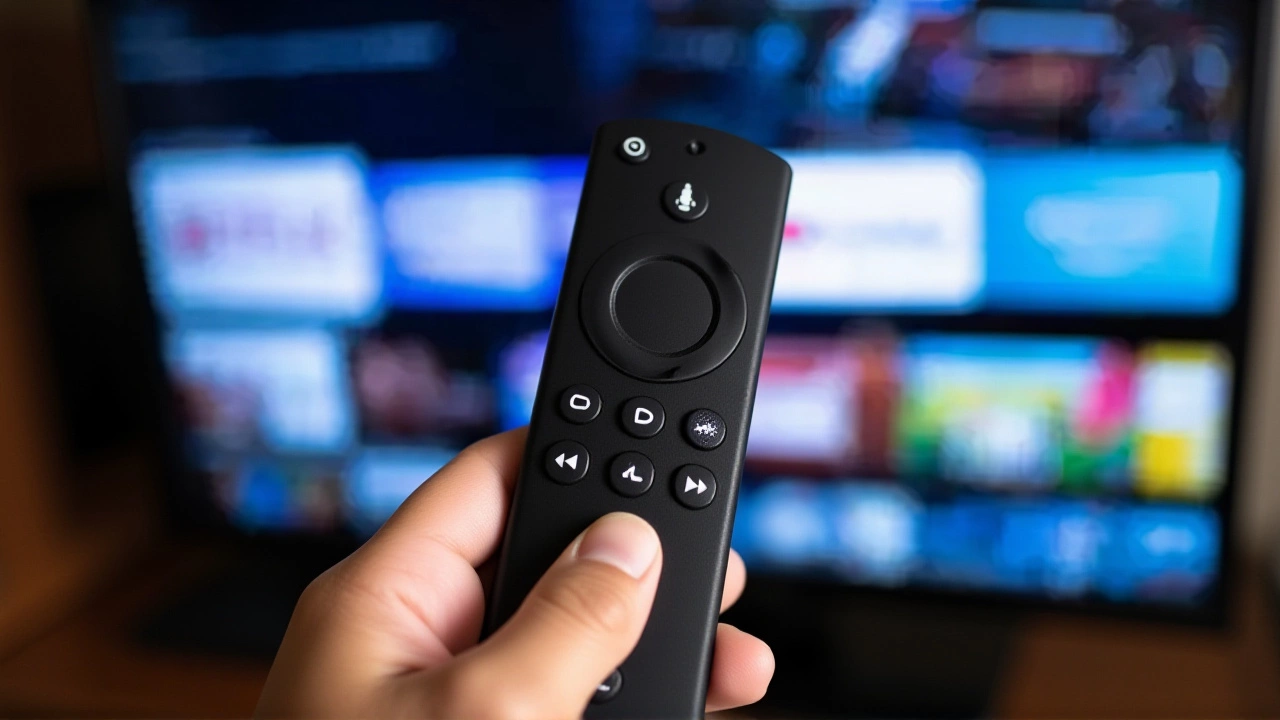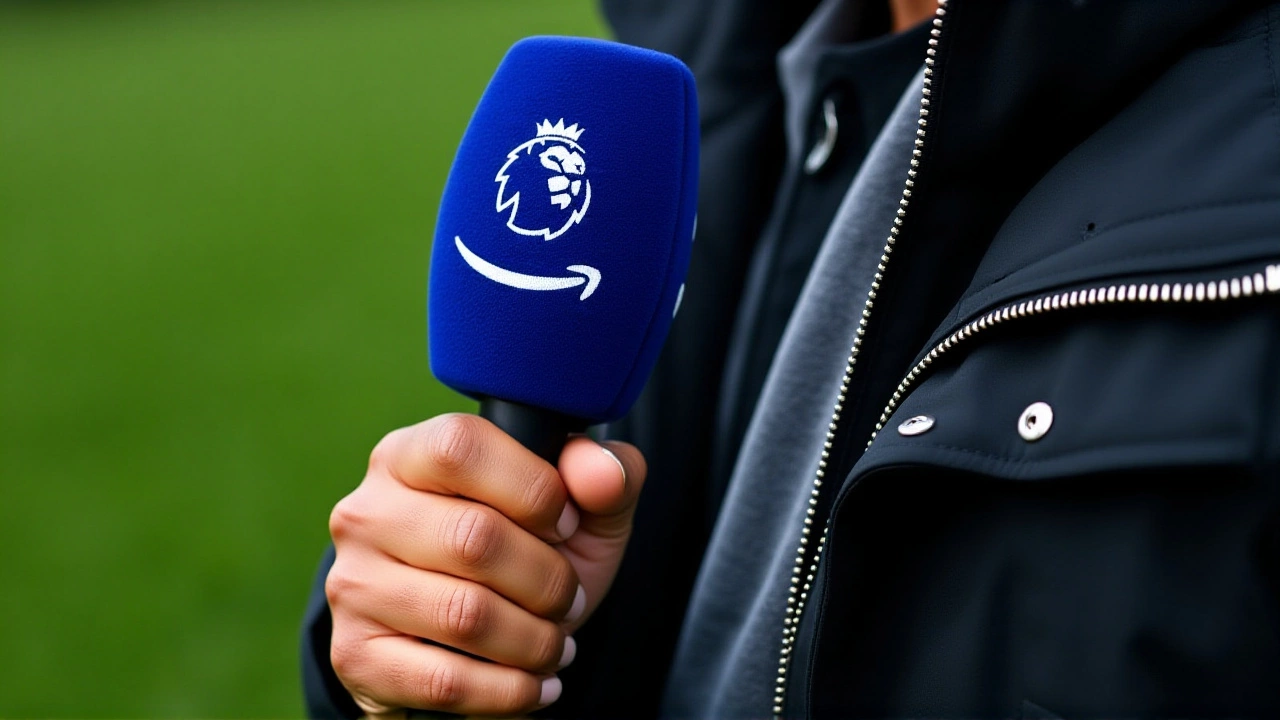Amazon.com, Inc. has begun remotely disabling pirated streaming apps on millions of Fire TV Sticks worldwide, marking one of the most aggressive anti-piracy moves by a tech giant in recent memory. The crackdown, first rolled out in France and Germany in early November 2023, is now expanding globally—with full deployment expected by March 31, 2024. The target? Unauthorized access to Premier League football matches, Hollywood films, and live sports through third-party apps that bypass paid subscriptions. For many consumers, especially in the UK, this isn’t just about copyright—it’s about access. And now, their devices are being turned off, remotely, without warning.
How Amazon is shutting down illegal streams
Amazon isn’t seizing devices or demanding users pay up. Instead, it’s using firmware updates to silently block apps flagged by the Alliance for Creativity and Entertainment (ACE) and the Federation Against Copyright Theft (FACT). These organizations maintain a dynamic blacklist of known piracy applications—some obvious, others deceptively innocent. Take Cody, for example. It’s an open-source media player, technically legal on its own. But as Andy Farrant of AFTV News noted in a November 12 analysis, “We don’t know how far they’re going to take this… take something popular like Cody, which is just a media player on its surface, but often used for piracy.”The system works by scanning installed apps on every Fire TV Stick—old and new—and comparing them against ACE’s database. If a match is found, Amazon pushes a silent update that disables the app. No reboot required. No user consent needed. The device simply stops working for those services. Even the newly released Fire TV Stick 4K Select, launched October 10, 2023, comes locked down: it runs on a Linux-based OS instead of Android and blocks sideloading entirely. Amazon’s message is clear: if you want to watch live sports, you’ll pay for it through official channels.
Why the Premier League is at the center of this battle
The Premier League has long been the crown jewel of global sports piracy. In the UK, Saturday 3pm kick-offs are blacked out on TV to protect live attendance—yet millions still stream them illegally. With Sky Sports charging £32.99 per month and TNT Sports at £25, many households find the £50-a-year cost of a hacked Fire Stick far more appealing. FACT estimates 1.5 million illicit devices are in active use across the UK alone, costing rights holders £1.2 billion annually.This isn’t just about lost revenue—it’s about control. The Premier League, along with Sky Group Limited and FACT, has spent years building legal pressure. In October 2023, a 32-year-old man from Liverpool received a three-year prison sentence for selling modified Fire Sticks on Facebook Marketplace. His crime? Not just selling them—he used them himself, violating Section 296ZB of the Copyright, Designs and Patents Act 1988. In another case, a 45-year-old man from Lebanon was sentenced to eleven months in a UK court and ordered to pay £69,000 in damages for streaming Premier League matches illegally.

Consumer backlash and legal gray zones
While Amazon’s spokesperson told The Athletic on November 15, 2023, that “piracy is illegal and dangerous,” and warned users about malware and fraud, many consumers feel caught in the crossfire. Some legitimate apps are being caught in the net. Others argue that owning a device should mean owning its software—especially after purchase.Professor Andrea Matwyshyn of Northeastern University School of Law warns that Amazon’s actions could violate the spirit of Section 1201 of the Digital Millennium Copyright Act, which prohibits circumventing technological protections—but also carves out exceptions for user modification. “This isn’t just about stopping pirates,” she said. “It’s about who controls your device after you buy it. That’s a fundamental consumer rights issue.”
And the crackdown may backfire. As one UK tech forum user put it: “If Amazon kills my Kodi box, I’m not going to pay £400 a year for Sky. I’m going to find a way that doesn’t leave a digital trail.” Underground forums are already buzzing with guides on how to re-flash devices using custom firmware—tools that carry higher risks of malware, data theft, and even remote surveillance.

What happens next—and who’s next?
Amazon’s rollout is country-specific. France and Germany went live first. The UK, Canada, and Australia are expected to follow, but no official dates have been set. The company says it will complete the global phase by March 31, 2024. But what about other streaming platforms? Will Roku, Apple TV, or even smart TVs face similar restrictions? Analysts believe this is just the beginning.For now, affected users have two options: factory reset their device (which erases all third-party apps) or risk jailbreaking again—this time with even less support and greater danger. Amazon’s updated Terms of Service, effective January 1, 2023, explicitly prohibit modifying Fire TV devices. Violating them could open users to liability under the UK’s Digital Economy Act 2017.
Meanwhile, the Premier League continues to expand its own streaming offerings, launching direct-to-consumer packages in select markets. But for now, the message from Amazon, the courts, and the studios is unanimous: if you want to watch the game, you’ll pay for it. The question isn’t whether piracy will end—it’s whether the cost of stopping it is worth losing control of the devices we bought.
Frequently Asked Questions
How do I know if my Fire TV Stick has been blocked?
If third-party apps like Kodi, Terrarium TV, or other streaming add-ons suddenly stop working after a system update—without you touching anything—it’s likely been blocked. Amazon doesn’t send notifications, but you’ll see error messages like “App not available” or “Installation failed.” Check your app list: if previously installed apps vanished or show as disabled, your device has been targeted.
Can I still use my Fire Stick for legal content after the block?
Yes. Amazon’s block only affects apps flagged for piracy. You can still access Amazon Prime Video, Netflix, Disney+, and other official apps without issue. The Fire TV Stick 4K Select, in particular, is designed to work exclusively with the Amazon Appstore, so as long as you stick to approved sources, your device remains fully functional.
Why are people getting prison sentences for selling hacked Fire Sticks?
Under UK law, selling devices pre-loaded with piracy software is treated as a criminal act under Section 296ZB of the Copyright, Designs and Patents Act 1988. It’s not just about the device—it’s about profiting from copyright infringement. Courts now view these sellers as facilitators of large-scale piracy, especially when they target live sports. The Liverpool case in October 2023 set a precedent: even personal use of hacked devices counts as a crime.
Is it legal to install Kodi on a Fire Stick?
Kodi itself is legal open-source software. But installing third-party add-ons that stream copyrighted content without permission turns it into a piracy tool. Amazon’s system doesn’t block Kodi—it blocks the add-ons inside it that link to illegal streams. So while the app isn’t illegal, how you use it may be. Many users don’t realize this distinction until their device stops working.
Will this crackdown stop illegal streaming completely?
No. History shows that when one door closes, another opens. While Amazon’s move will reduce mainstream piracy, it’s likely to push users toward more obscure platforms—encrypted peer-to-peer networks, encrypted APKs, or even satellite-based streams. The real challenge isn’t technology—it’s price. As long as legal sports packages cost hundreds of pounds annually, demand for cheap alternatives will persist.
What should I do if I’ve been using illegal streams?
Stop using pirated apps immediately. Reset your Fire Stick to factory settings to remove all unauthorized software. Consider switching to official services like Amazon Prime Video’s sports add-ons, or cheaper alternatives like NOW TV, which offers Premier League access for £25/month. If you’ve sold hacked devices, consult a legal professional—prosecutions are increasing, and ignorance won’t protect you.
